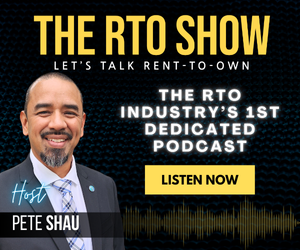
The APRO Code of Ethics was created alongside the association in 1980, written by the first APRO members to establish a set of guidelines consistent with what they felt should be ingrained in the industry’s values, priorities, and ethical standards.
Today, this 14-point Code of Ethics endures as the defining guidance that APRO members agree upon in order to maintain a healthy business environment for the rent-to-own industry. As the Code of Ethics continues to be not just relevant but essential to our association and our membership four decades later, we offer this series of newsletter articles to recap and reconfirm each of these ethical standards with you.
CODE II
Members shall develop and encourage the practice of high standards of personal and professional conduct among themselves.
Everyone has been on the receiving end of poor professional conduct at some point in their lives or careers. Whether it’s a minor mishap like not getting a straw with your soda, or a major mess like being berated by your boss in front of colleagues and customers, unprofessional behavior reflects poorly not only on the individual, but also on the business they represent and, by extension, on any larger entity they may be associated with.
Professionalism and respect – both for yourself and others – is especially important within the rent-to-own industry. Continuing and recurring customers are essential to your success, yet RTO customers are never required to keep making payments to you. Customers must be willing to keep returning to your business week upon week, month upon month, for you to prosper, and the way your team interacts with them plays a key role in whether customers keep coming to your store or take their business elsewhere.
Additionally, it’s in every APRO member’s best interests to support good personal and professional conduct among all APRO members, as your company is also dependent upon the good reputation of the rent-to-own industry overall. Whenever a single store behaves badly, it’s possible that will blemish everyone involved in RTO. Article II of the APRO Code of Ethics was created to encourage positive conduct in order to promote the great health of the industry as a whole.
Here’s a handful of online articles regarding personal and professional conduct that you and your staff might find helpful as you manage your professional development efforts:










